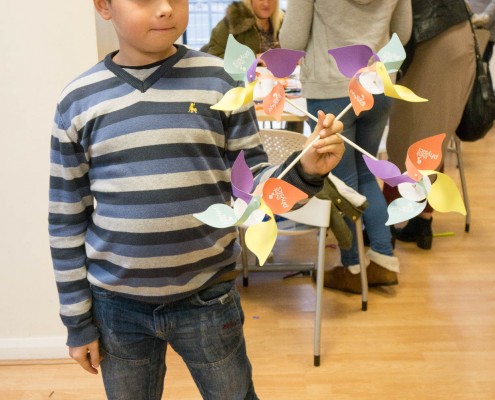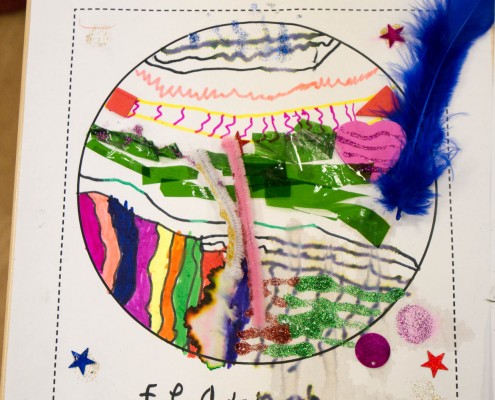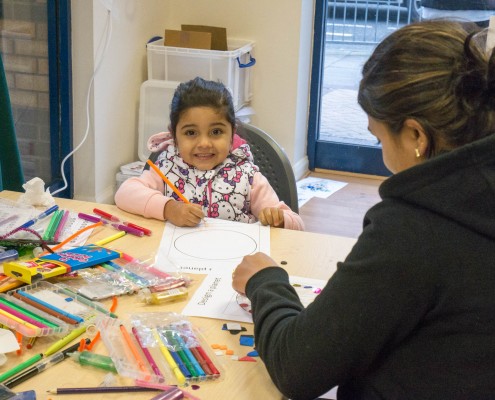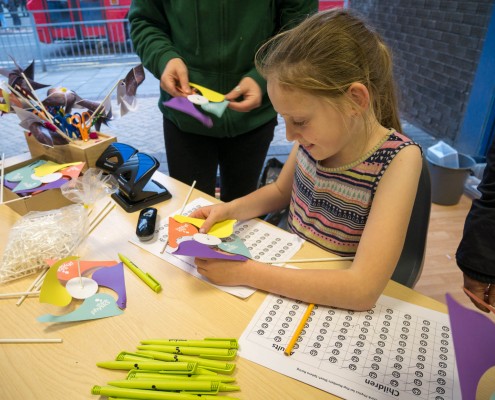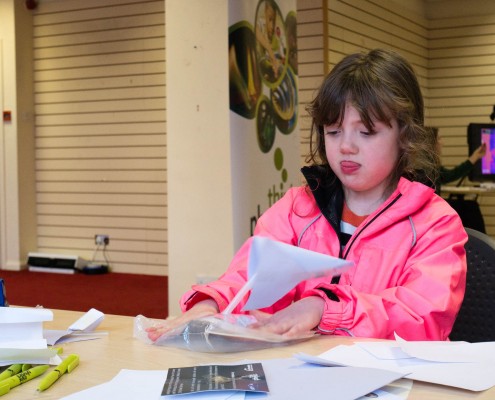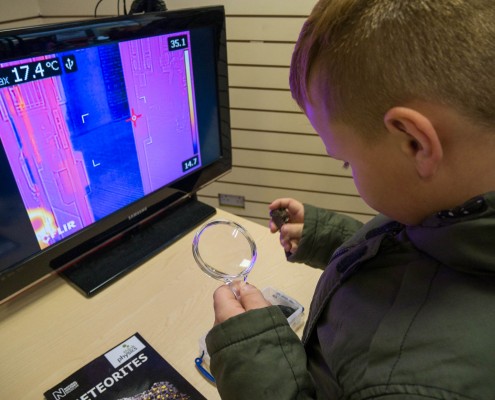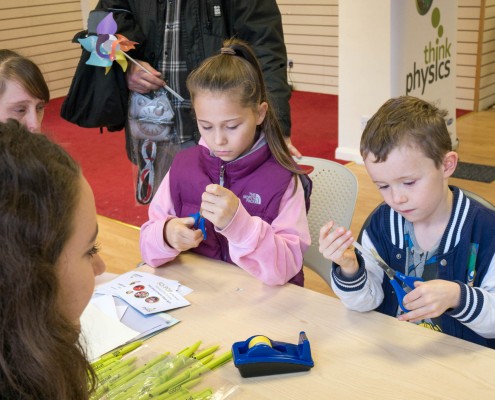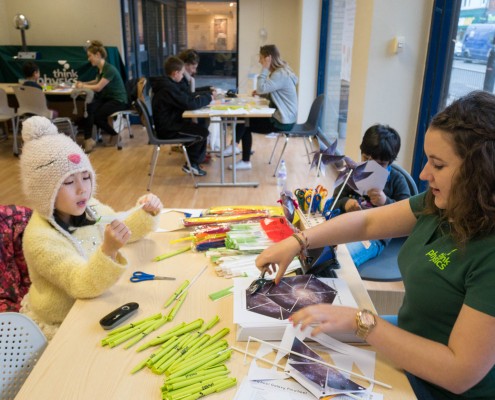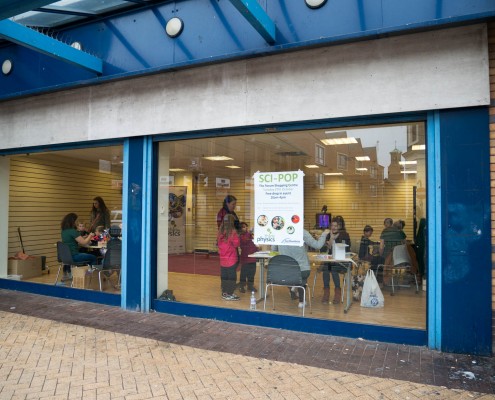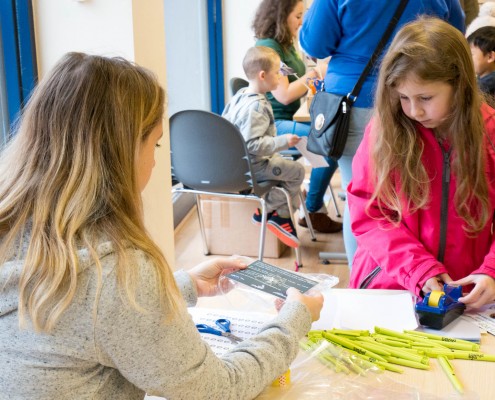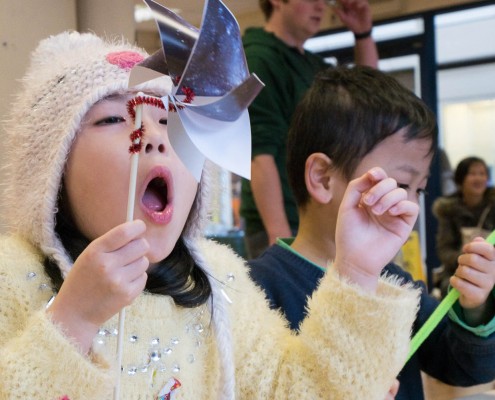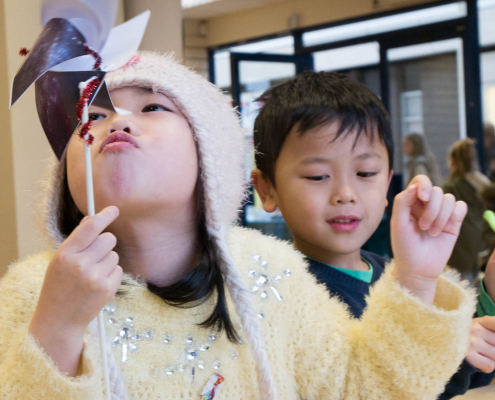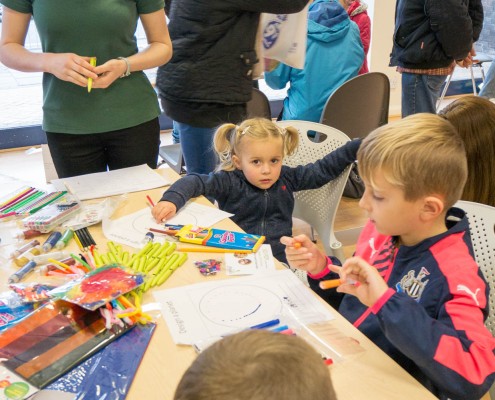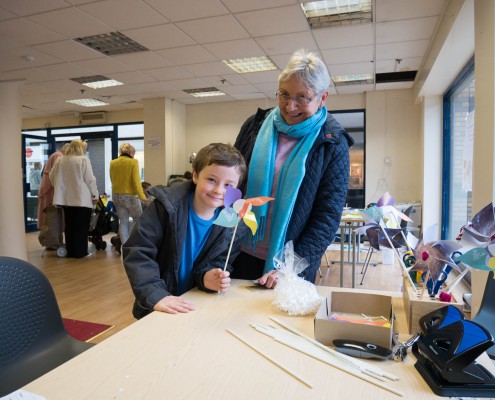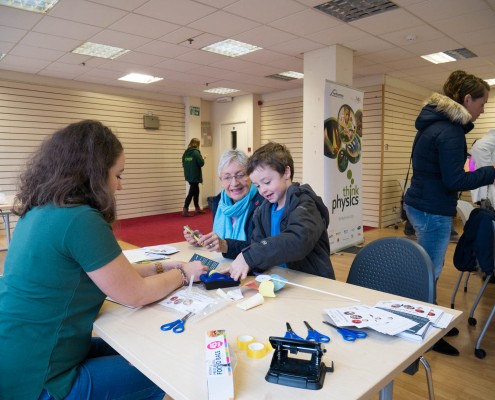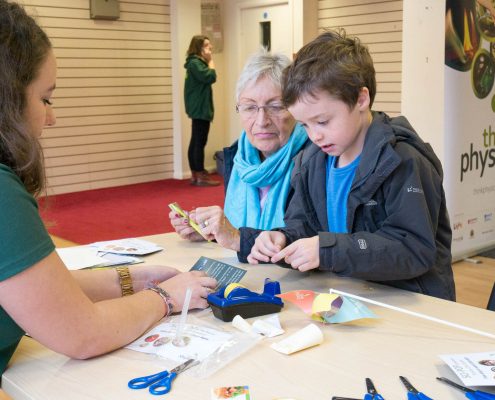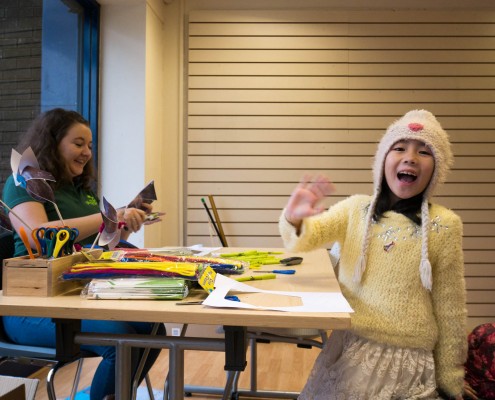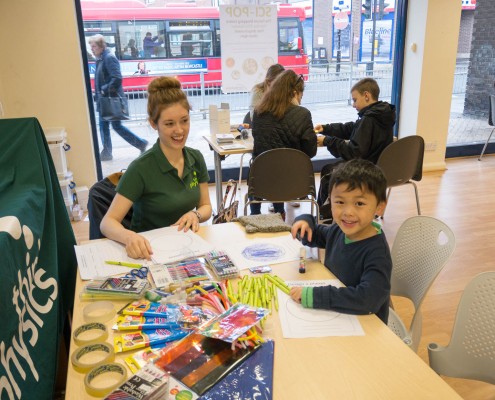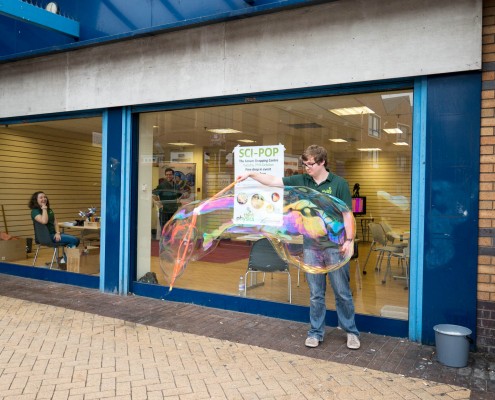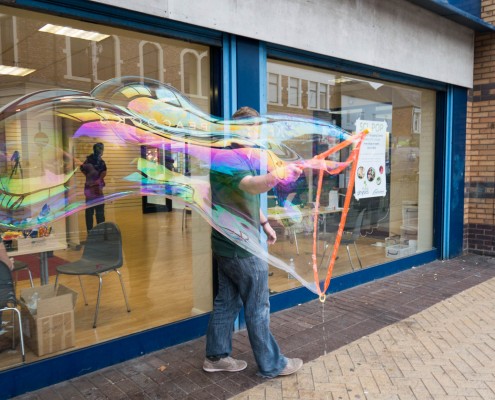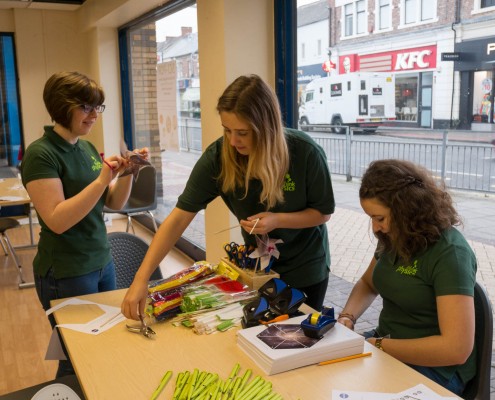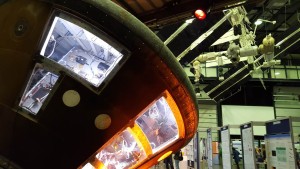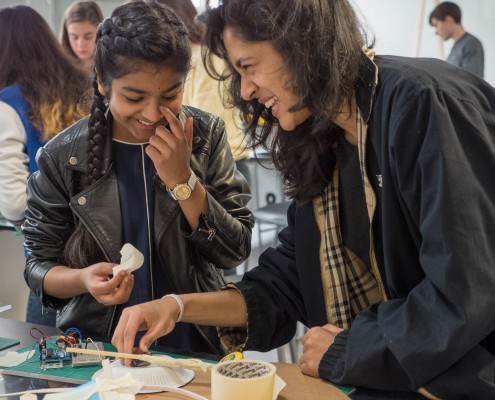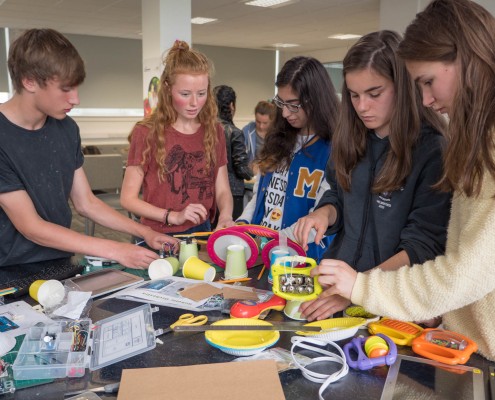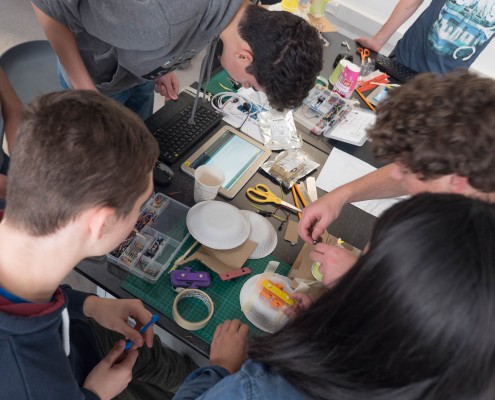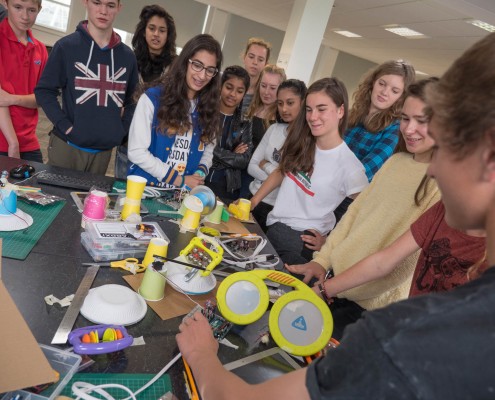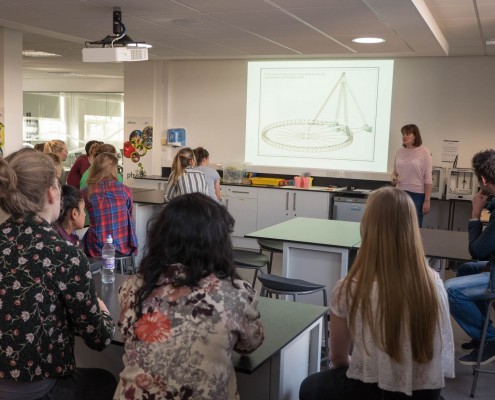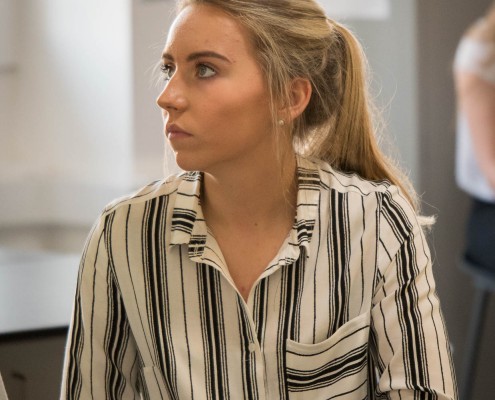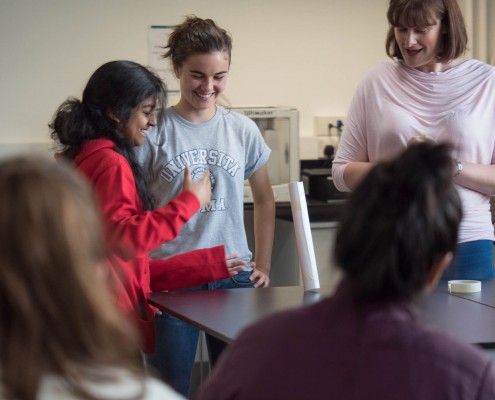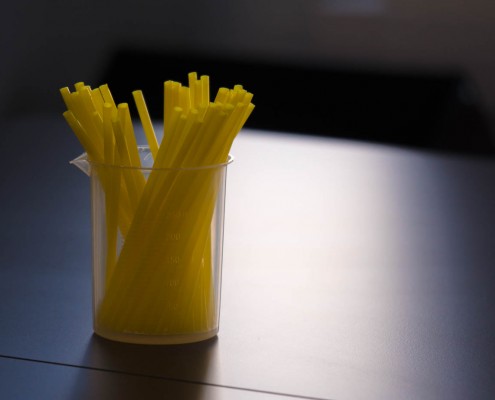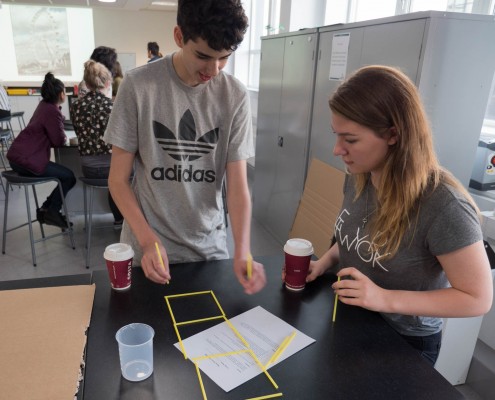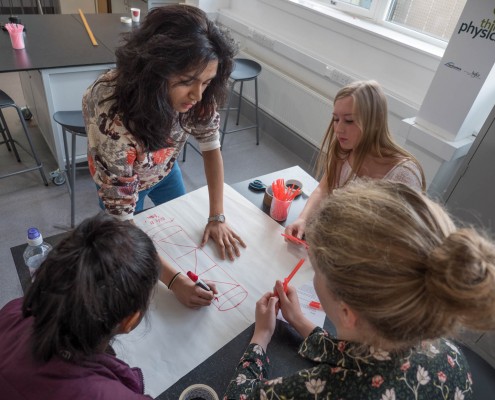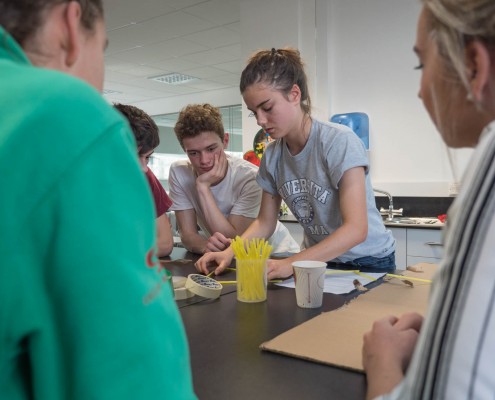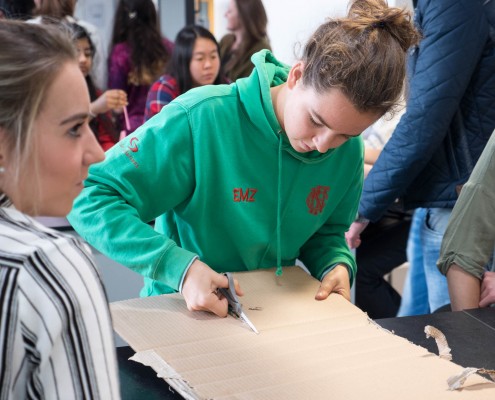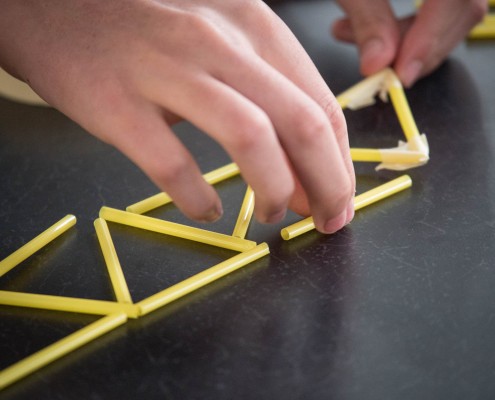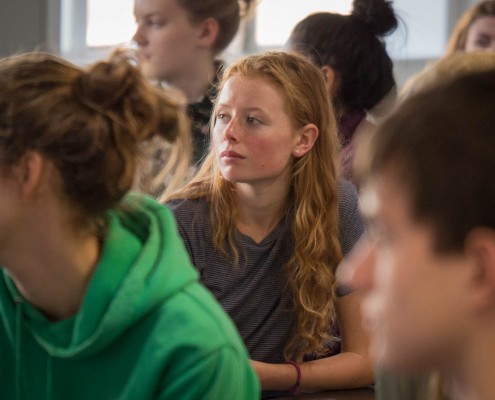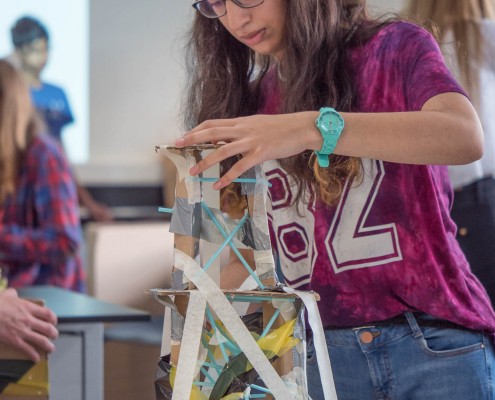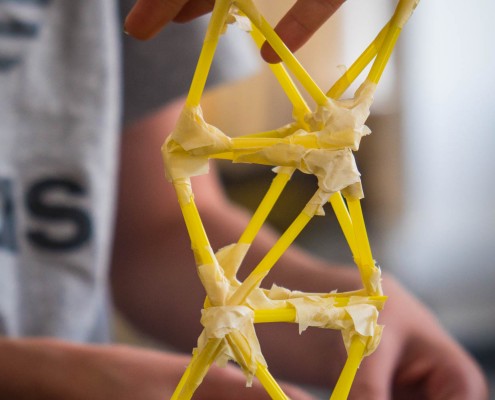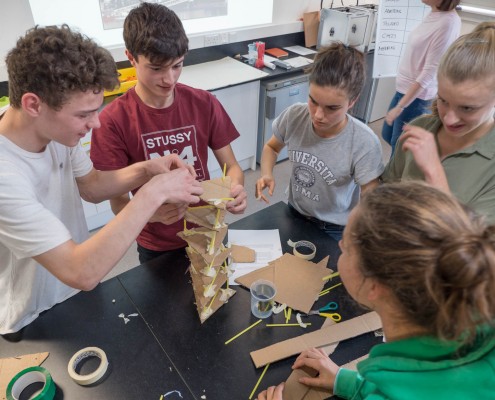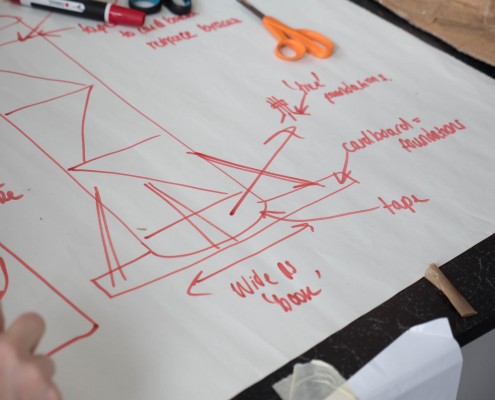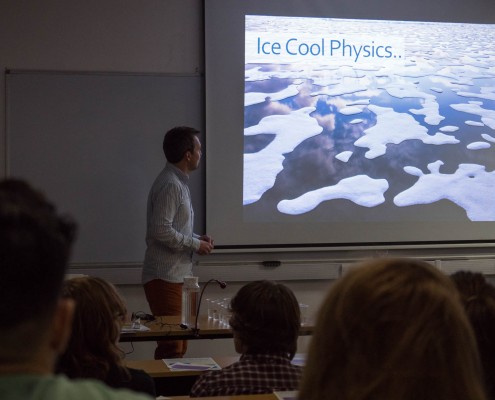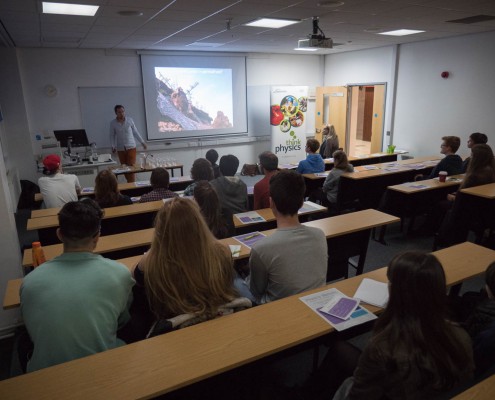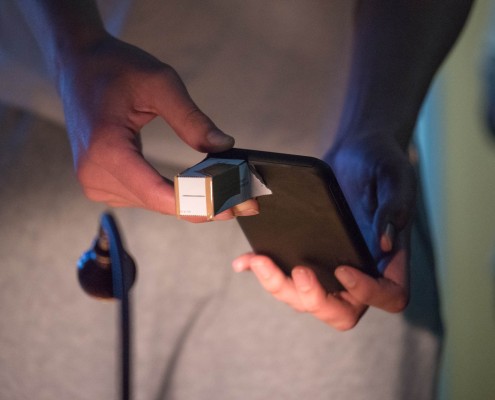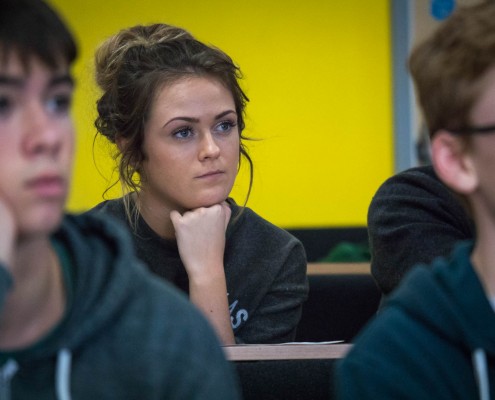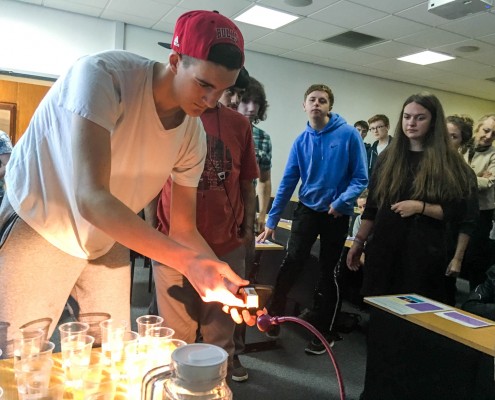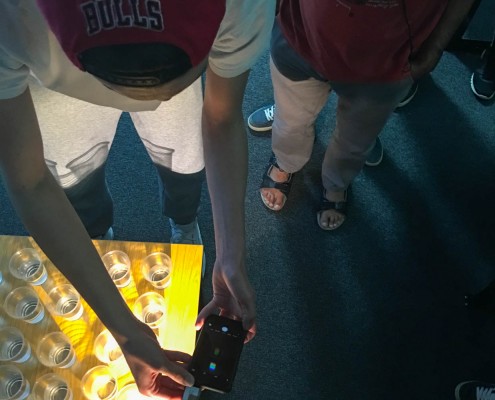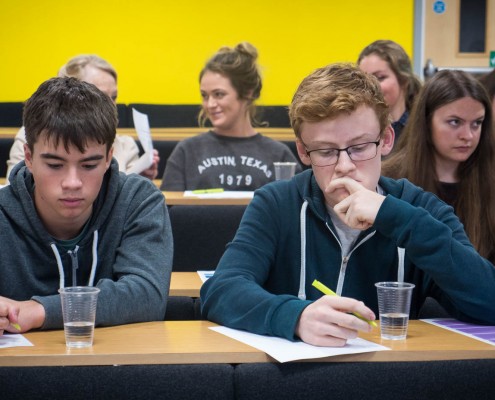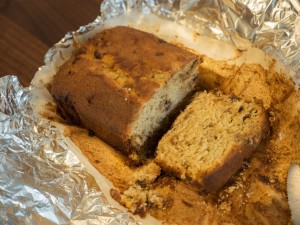Ohbot on Kickstarter
I may be a little obsessed with DIY robots. We’re gradually building up a robot menagerie in the Think Physics office, and I’m planning a comparative review of some of the available kits and plans. But that’s not ready yet, and in the meantime you may like to know about this:
I met Matt and Dan at BETT at the beginning of the year, where they had a tiny stand showcasing early prototypes of their Ohbot robotic head. Think Physics bought a couple – we were showcasing one of them at the Juice Festival last week, and you’ll see them around at more of our events over the coming months. I continue to be impressed by them, and the software’s particularly good. It’s Windows-only, but adopts a Scratch-like block programming system which is both straightforward and quite flexible.
Right now, the guys are back on Kickstarter with a more developed, easier-to-build and more expressive version of Ohbot. It’s turning even more into a robot puppet, and once they get over the injection moulding hurdle it should be considerably cheaper than the previous short-run laser cut prototypes.
Ohbot’s interesting because while it is a robotics and programming project, it’s also about self-expression, dialogue, emotion, and our responses to technology. I very much like the pure robotics approach of miniature robotic arm MeArm, and the accessible turtle-graphics programming focus of Mirobot, but Ohbot is a fascinating addition to the mix. For Think Physics’ purposes, I like it because it’s clearly using the same palette of components and techniques as our other robots, and it’s also doing something rather different. If the Maker movement is about any one thing, that thing has to be “technology put to creative use”, and Ohbot is an excellent invitation to think beyond Arduino coding and wiring components together, and to really explore how we want our technology to work for us.
The Ohbot2 Kickstarter closes on Sunday morning (!), and as I write this is tantalisingly close to success. If you can help it reach its target, do pledge for one of the rewards.
Update: Success!
The Ohbot2 Kickstarter was successful on Sunday, so the team are gearing up for full-pelt production in time for Christmas. Congratulations, guys!

